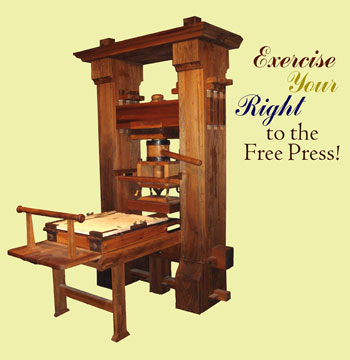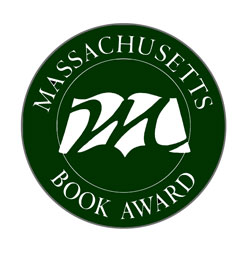As the Massachusetts Book Awards (see www.massbook.org) enter their tenth year, I find myself reviewing the guidelines to improve on the program and one of the primary things I puzzle over is a guideline about self-publication that has been rendered meaningless over the decade. When we established the awards in 2000, we adopted the National Book Award guideline: self-published books are eligible for consideration if they emanate from a publishing house that also brings out other titles. Vanity presses always fit within that guideline, of course. But publication through a vanity press was a significant expense, one not undertaken by many would-be authors. Now, as various print-on-demand enterprises have lowered the financial barriers to publication, we find that the number of self-published books being submitted to the MassBooks is growing. The books come to us from a number of “houses”—Lulu Publishing (www.lulu.com), IUniverse (www.iuniverse.com), AuthorHouse (www.authorhouse.com) among them. (See an interesting New York Times piece on this phenomenon: “Self-Publishers Flourish as Writers Pay the Tab” by Motoko Rich, January 27, 2009). What’s missing in these new publishing houses is, of course, the vetting process. Books no longer compete to enter the marketplace but present themselves solely at the discretion of their authors. Why does this shift of power away from an editor/publisher and toward the author seem to be a problem?
 We are at a recognizable juncture in the development of print, a time when new technologies have blurred the lines between authoritative and non-authoritative publication. With the development of the portable printing press, for example, broadsides that were produced by radical groups in the late Renaissance looked just like those sanctioned by governments, and the hierarchy of meaning that had been established by the authority of print over other written communication broke down. Jumping quite far into the future, the advent of desktop publishing in the late 70s led to a revolution in the newsletter market as small organs could present themselves in a format that rivaled the established big players. In today’s market, WordPress and BlogSpot have leveled the field for the individual critic in his/her dialogue with traditional news organizations.
We are at a recognizable juncture in the development of print, a time when new technologies have blurred the lines between authoritative and non-authoritative publication. With the development of the portable printing press, for example, broadsides that were produced by radical groups in the late Renaissance looked just like those sanctioned by governments, and the hierarchy of meaning that had been established by the authority of print over other written communication broke down. Jumping quite far into the future, the advent of desktop publishing in the late 70s led to a revolution in the newsletter market as small organs could present themselves in a format that rivaled the established big players. In today’s market, WordPress and BlogSpot have leveled the field for the individual critic in his/her dialogue with traditional news organizations.
Sounds exciting, on the one hand. Power shifts away from the conglomerate and to the individual. On the other hand, it seems as if chaos could ensue. The reader, already feeling that there is just too much out there to read, now wonders if he or she will be wasting precious reading time on books that should never have seen the spine of perfect-bound production. We may well start to yearn for gatekeepers, even if we pride ourselves on our non-conformist tastes.
In the beginning of the 1990s, I dismissed people who worried too much about whether a book was worth looking at, characterizing them as inexperienced readers in the article “Get with the Program! The Mass & Direct Marketing of Children’s Literature” (The Lion and the Unicorn, Volume 17, Number 1, June 1993). There I looked at the way children’s literature book clubs marketed themselves as advisors to new parents, providing through their monthly choices the authoritative word on what books were worthy additions to the libraries of their growing children. At the time, I thought it shouldn’t be that tough to pick a book. If one were willing to read a review or two, visit the local bookshop to see what booksellers were saying about certain books, take a trip to one’s library, and – most importantly — risk buying a bum book here and there, then it was possible to navigate the world of books and find the gems without deferring to the judgment of the book club.
Now, I wonder. In a time when the local bookseller is under siege, when book reviews are hard to find in the shrinking pages of our newspapers, and when the ratio of juried to non-juried books in the marketplace has shifted, might I see the value in having someone point the way, steering readers toward great literature and away from trivial publications? Have I come to the place where I am ready to place my reading decisions in someone else’s hands?
Maybe. But in our social-networked society, what form could that gatekeeping take? If I had to predict, I would say that we will see many more tallies of book sales and mentions on book blogs so that books are ranked based on their popularity in the marketplace just as the popularity of certain internet sites determines their rankings in a Google search. What I suspect is that in a time when it’s not that hard to become published, the competition has already shifted away from fighting to get into print and toward fighting to get talked about by readers.
In this new age, then, the reader emerges more clearly as the gatekeeper, and the various stamps of approval that readers and reading organizations put on books will be useful tools in the post-publication vetting process. And in that vein, I’ve decided that I won’t change the MassBook guidelines about self-publication but will continue to welcome all comers and let the awards program jump energetically into the ever-more-important role of readers’ evaluations in a self-published marketplace. It may be, moving forward, that some of the best ways to promote books and reading will be to find the gems that authors present to us not with “permission” from an authority but merely with a passion for (self-) expression that they ask us to evaluate for ourselves.
that readers and reading organizations put on books will be useful tools in the post-publication vetting process. And in that vein, I’ve decided that I won’t change the MassBook guidelines about self-publication but will continue to welcome all comers and let the awards program jump energetically into the ever-more-important role of readers’ evaluations in a self-published marketplace. It may be, moving forward, that some of the best ways to promote books and reading will be to find the gems that authors present to us not with “permission” from an authority but merely with a passion for (self-) expression that they ask us to evaluate for ourselves.
Photo credit:
Free press image used courtesy of the Museum of Printing History


